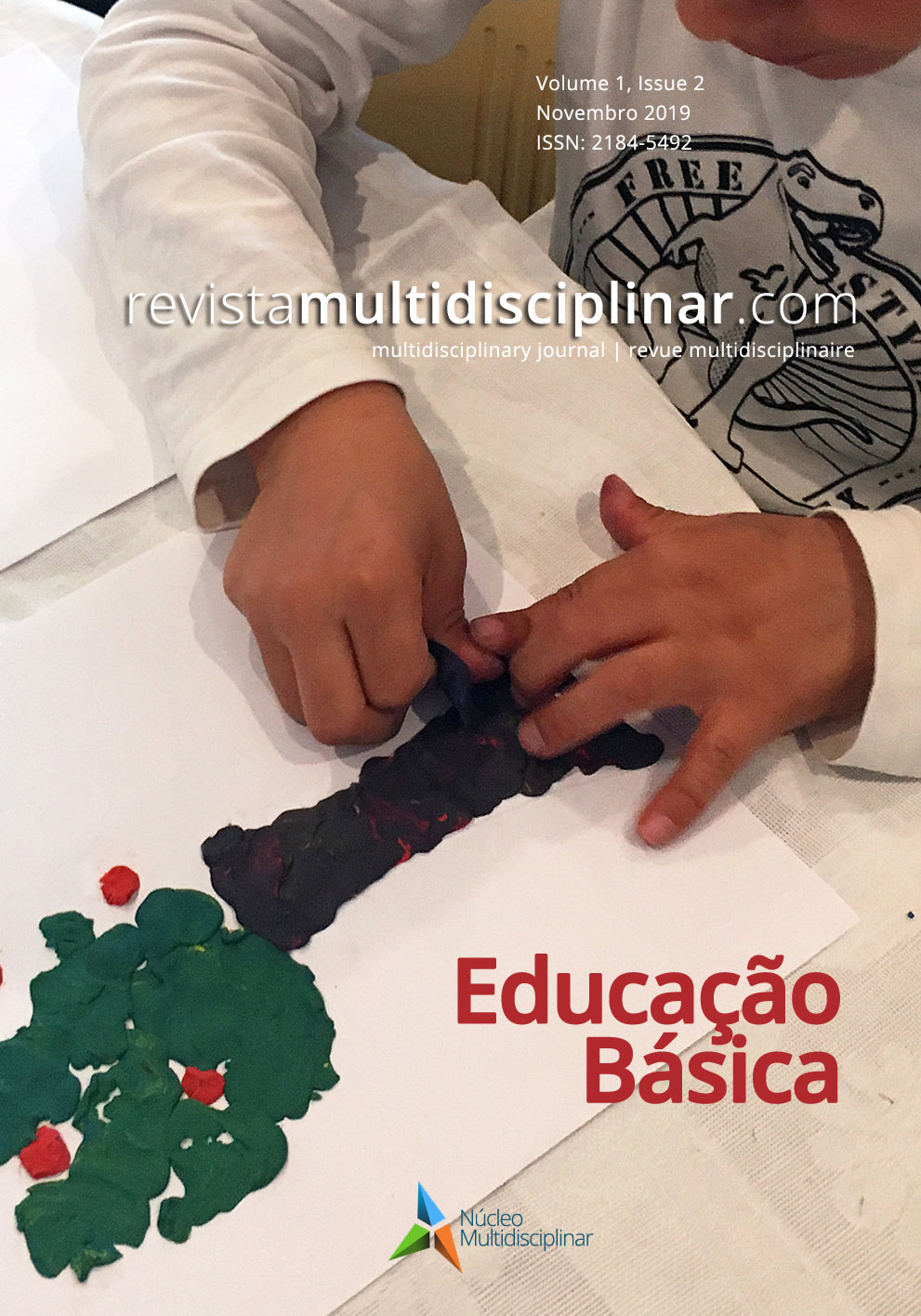Primary school teachers' practices
The contribution of collaborative work
DOI:
https://doi.org/10.23882/MJ1914Keywords:
collaborative work, data handling, professional practices, task construction, teachersAbstract
There are several studies that focus on the teacher's practices in collaborative work context, highlighting the importance of peer collaboration, which can contribute to respond to problems of practice and increase the capacity for reflection of the teachers. In this paper we discuss the contributions of collaborative work in the selection and preparation of data handling tasks with investigative characteristics and reflection on its implementation. Particular attention is paid to the aspects valued by teachers and the benefits they draw when they engage in this type of work. The study follows an interpretative and qualitative research methodology. Data collection is based on participation in working sessions with audio recording, complemented with interviews. The results show that teachers value their participation for the benefits received, namely a better knowledge of the subject data handling and tasks with investigative features, learning performed and reflection on their practices. They also emphasize openness and mutual respect that throughout the work, factors they consider fundamental to the establishment of a climate of confidence which challenged them to try new situations and take risks.
References
Boavida, A., & Ponte, J. (2002). Investigação Colaborativa: Potencialidades e problemas. GTI (Ed). Refletir e Investigar sobre a prática profissional (pp. 43-55). Lisboa: APM.
Delgado, C. (2013). As práticas do professor e o desenvolvimento do sentido de número: um estudo no 1.º ciclo. (Tese de Doutoramento, Universidade de Lisboa).
Duarte, J. (2012). Práticas de ensino que promovem o pensamento algébrico: um estudo com duas professoras no 7.º ano de escolaridade. In L. Santos (Ed.), Investigação em Educação Matemática (pp. 31-62). Portalegre: SPIEM.
Canavarro, A. P. (2013). Sobre estudos estatísticos: do questionar à recolha de dados. Educação e Matemática, 122, 34-36.
Fielding-Wells, J. (2010). Linking problems, conclusions and evidence: primary students’ early experiences of planning statistical investigations. In C. Reading (Ed.), Proceedings of the Eighth International Conference on Teaching Statistics (pp. 1-6), Ljubljana, Slovenia: ISI and IASE.
Franklin, C., & Garfield, J. (2006). The GAISE Project: Developing statistics education guidelines for grades Pre-K-12 and college courses. In G. Burrill (Ed.), Thinking and reasoning with data and chance (pp. 345-375). Reston, VA: NCTM.
Garfield, J., & Ben-Zvi, D. (2008). Developing students’ statistical reasoning. The Netherlands: Springer.
Guerreiro, A. (2011). Comunicação no ensino-aprendizagem da matemática: práticas no 1.º ciclo do ensino básico. Tese de Doutoramento, Universidade de Lisboa.
Hargreaves, A. (1998). Os professores em tempos de mudança. O trabalho e a cultura dos professores na idade Pós-Moderna. Lisboa: Mc Graw-Hill.
Konold, C., & Higgins, T. (2003). Reasoning about data. In G. Burrill (Ed.), Research Companion to Principles and Standards of School Mathematics (pp. 193-215). Reston, VA: NCTM.
Martins, M. E., & Ponte, J. P. (2010). Organização e tratamento de dados. Lisboa: Ministério da Educação. DGIDC.
Menezes, L. (2004). Investigar para ensinar Matemática: Contributos de um projeto de investigação colaborativa para o desenvolvimento profissional de professores. Tese de Doutoramento, Universidade de Lisboa.
Patton, M. (2002). How to use qualitative methods in evaluation. Sage Publications, Inc.
Rodrigues, A. (2016). Conhecimento e práticas de professores em educação estatística: três estudos de caso no 1.º ciclo num contexto de trabalho colaborativo. (Tese de Doutoramento, Universidade de Lisboa).
Ruthven, K., & Goodchild, S. (2008). Linking research with teaching: Towards synergy of scholarly and craft knowledge. In L. English (Ed.), Handbook of international research in mathematics education (2.ª ed.), (pp. 565-592). New York, NY: Routledge.
Saraiva, M., & Ponte, J. P. (2003). O trabalho colaborativo e o desenvolvimento profissional do professor de Matemática. Quadrante, 12(2), 25-52.
Serrazina, M. L., Canavarro, A. P., Guerreiro, A., Gouveia, M., Rocha, I., & Portela, J. (2005). Programa de Formação Contínua em Matemática para professores dos 1.º e 2.º Ciclos do Ensino Básico. Lisboa: DGIDC.
Stake, R. (2007). A arte da investigação com estudos de caso. Lisboa: Fundação Calouste Gulhenkian.
Veia, L. (2013). Condução de tarefas de organização e tratamento de dados no 3.º ano de escolaridade. In Fernandes, J. A., Martinho, M. H., Tinoco, J., & Viseu, F. (Orgs.). Atas do XXIV Seminário de Investigação em Educação Matemática (169-182). Braga: Centro de Investigação em Educação da Universidade do Minho
Downloads
Published
How to Cite
Issue
Section
License
Copyright (c) 2019 Luciano Veia

This work is licensed under a Creative Commons Attribution-NonCommercial 4.0 International License.









